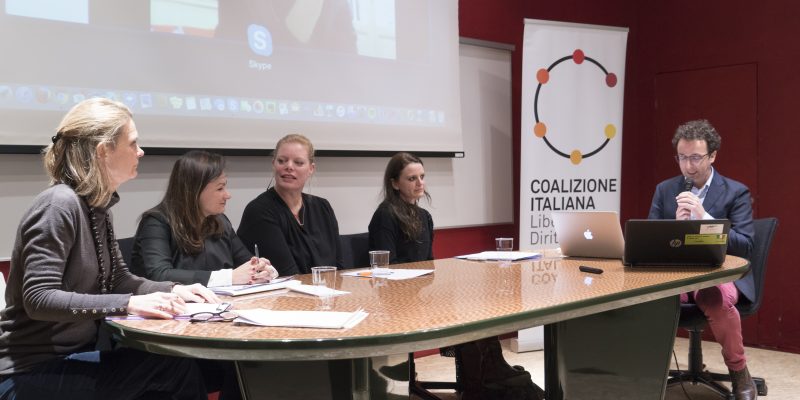If cities are the first frontier in the integration of migrants, then having migrants connect with local experience is of fundamental importance. And this is precisely what Milano Cities for All, an international conference organised by the Italian Coalition for Civil Rights and Freedoms (CILD) [which created and runs Open Migration], and Humans on the Move, together with the Municipality of Milan and Impact Hub Milan, has tried to do. Three tables and three keynote speeches attempted to respond to a few key questions.
As the director of CILD, Andrea Menapace, explained, three months after the UN summit on Addressing Large Movements of Refugees and Migrants, a lot remains to be done in terms of innovation and creating sustainable environments for people on the move. Furthermore, there is the need to step beyond the “comfort zone” of the UN; however, over the past three years, Milan has been a great example of the synergy possible between public and private spheres. For Christine Mendonca of Humans On the Move, a group exploring ethical business solutions for migrants, in addition to translating ideas and principles into concrete measures, it has to do with deciding who is to adopt these measures.
The first keynote speech of the day is given by Emma Bonino – a founder of the International Criminal Court, a leader in the battle for civil and human rights and an expert on the right of immigration. “I don’t want to cite the usual statistics,” she said, “but, as far as migrants are concerned, we are being confronted with an epidemic of lies and it’s our responsibility to fight them.” The important facts, she continued, have to do with the disappearance of unaccompanied minors who slip out of the documented net of the Interior Ministry – “we don’t know where they go but we can well imagine: they end up in the criminal world and are at risk for radicalisation”; the trafficking of Nigerian women and their state of slavery: “their documents are taken away and even when they are engaged in rehabilitation projects they often return to prostitution because they don’t make enough money to repay their debts [to traffickers] or send home to their families”. And of even more importance: “Of the 8,000 mayors in Italy, only 2,500 have agreed to be part of the reception network: that is too small a number.” As Bonino sees it, the movement of persons will not stop, and therefore solutions must be more long-term. “In Italy, people have decided that there is some sort of invasion, and when we respond to Salvini’s lies, we are too polite and too ready to accept solutions which keep immigrants far away from us, like the repatriation accord reached with Sudan.”
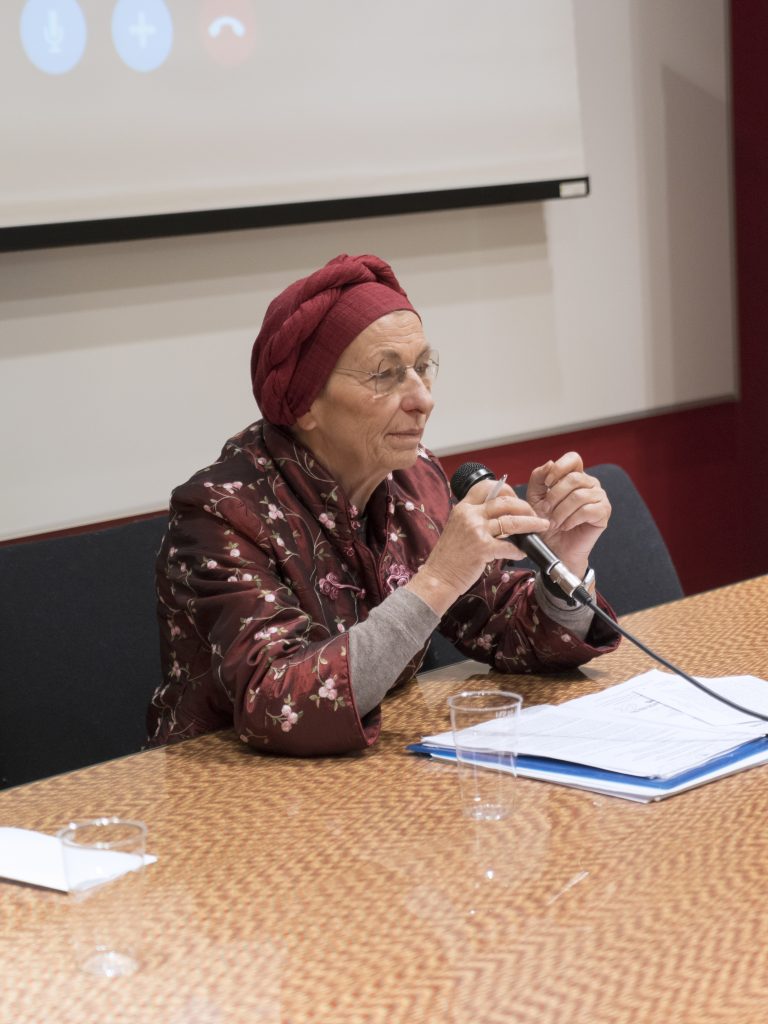
Emma Bonino at Cities for all. Photo: Fabrizio Albertini
For Bonino, there are two paths. The first is changing legislation and the second is upsetting the narrative of anti-immigration, ceasing to ‘preach to the choir’. In her eyes, above all, migration is not an invasion. “In order for the Italian economy to work, we need about 60,000 new immigrants every year. This is true for Germany, Spain, Portugal and Bulgaria too. In other words, immigration is an important part of the European Union. Recently, I congratulated a Norwegian colleague on their finding of a gas deposit and he thanked me, but said he would have gladly exchanged it for 50,000 nurses.” Italians believe that Muslims make up an extremely high percentage of immigrants, but, in reality, they make up only 4% and “Italians have little to no idea that the majority of immigrants are Christian or animists.” According to Bonino, false narratives will not change until people go down into the streets to meet these others.
For now, however, there is a legislative battle to be fought. Since 2015, Italy is no longer a country of transit. “We are the ones creating an army of illegal immigrants, creating a new problem for ourselves. Mayors can cause miracles but they can’t violate the law, and the law needs to be changed. With the closing of the borders, migrants in transit have become asylum-seekers. However, less than 50% of requests are accepted and, in my opinion, this is due,” Bonino said, “to an illegal interpretation of the concept of ‘safe state’ because international rights are based on the concept that asylum must be guaranteed on an individual basis, not on the basis of your country of origin. After having their requests for asylum denied, irregulars remain in Italy for two main reasons: either repatriation is too expensive or their countries do not want them back. And this is how they end up prey to the black market and exploitation – for example, through rents that are three-times as high. Above all, they work as domestic help, in agriculture and in construction. They have no documents or any legal base for laying claim to their rights, they cannot ask to be reunited with their families.” Bonino said that she is studying the law and developing a proposal for regularisation that she doesn’t want to end up in a drawer somewhere in Parliament but to become a law of popular initiative. “It is sufficient that we agree on those few principles we have in common – that Sharia will not be practiced, that we cannot accept the full veil because our law is based on individual responsibility in public spaces, that we will go to the streets and protest anti-immigrant propaganda in a non-violent manner – we need new, creative and technological ideas.”
Here to discuss successful models of integration are Manuela Brienza of the Department of Social Policy from the Municipality of Milan, Fleur Bakker of the Dutch business group for refugees Refugee Company, Csilla Toth of Open Society Foundations and Nadina Christopolou of Melissa Network. Brienza talked about reception figures in Milan, the great change that occurred in 2015 with the closing of some European borders and the objectives of the municipality in terms of achieving wide-reaching reception, beginning with a pilot reception programme in families and private homes with observed tutoring and a 350-euro monthly allowance for every family. In just three years, 118,000 persons travelled through Milan, 25,000 of whom were minors and 5,000 of those unaccompanied. On December 12, Brienza says, there were 3,755 people who were either in transit, seeking asylum or beneficiaries of international protection; of these, 422 are being hosted in the system of the SPRA network, almost 1,500 by the prefecture of Milan together with the third sector, which includes the 300 in Caserma Montello; the remaining 1,839 are by now for the most part seeking asylum (for the moment on a voluntary basis but it could become a programme of professional internship) and working on projects of environmental requalification, the battle against urban neglect and cleaning the parks of Milan.
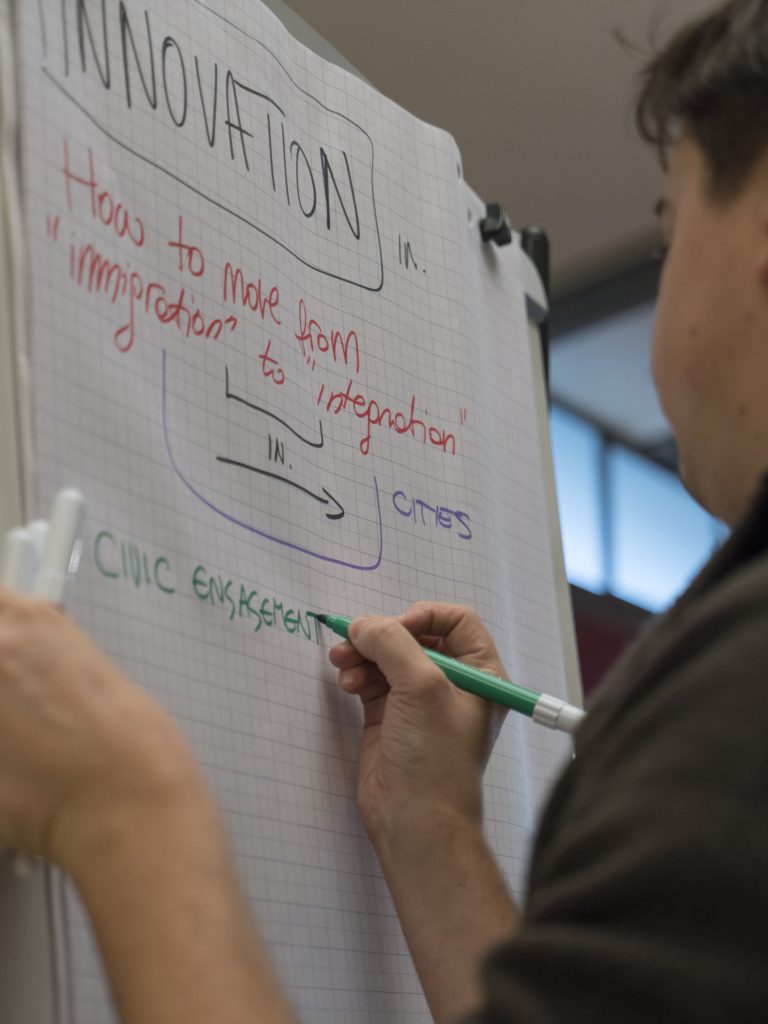
Innovation and integration. Photo: Fabrizio Albertini
Fleur Bakker relates the experiences of Refugee Company in Holland. “In Holland, above all, refugees or migrants live outside the city centre. I’ve been working in these areas for 17 years and only rarely have I met any engineers or bankers; for this reason, we’ve been concentrating on professional development and on work as a means of clearing oneself from the tag of being a refugee. We train brilliant Syrian electricians to install solar panels. If you know a little bit about Holland, you know that we have a very structured, strict system; we’re seeking creative solutions to get around that system a bit, for example, by bringing the electricians with us to work on the roofs for a week so that they then have that experience on their CVs before entering into the professional Dutch network.” Here is a video from the Refugee Company showing Mr Khaled’s work, who, though still a refugee without definitive documents, has become a tailor specializing in tuxedos. “We make sure that people are adequately paid and that they can demonstrate marketable experience in their CVs.”
Csilla Toth discusses a project run by Open Society dedicated to the integration of Muslim migrants, which she has been involved with since the very beginning. “It was going well until, after a number of terrorist attacks of an Islamist nature, things became somewhat controversial. The populist narrative against the integration of the Muslim community is growing, and the situation is worse than it has been since 2007. Standards of reception are in decline, even in the United States. One of our most successful experiences, however, has been our peer-to-peer professional teaching. One of the keys to integration is resolving the excessive brevity of temporary residence permits, which don’t allow for any projects to be established or roots to take hold.” Brienza agrees and adds that, according to the law [n. 142 of 18 August 2015, which acknowledges two European directives on the subject, editor’s note], which went into effect September 30, today you can begin to work two months after your first residency permit.
One of the points to emerge from the discussion between Brienza, Toth and Bakker is that cities are laboratories which need to be monitored as they are the spaces where national policies play out. The other mental step that needs to be taken, anthropologist Nadina Christopoulou says via Skype from Athens, is to transmit the idea that “the refugees of today are our neighbours of tomorrow,” and to put all our energy there. Nadina is speaking from an old building in the heart of Athens where from the windows you can see one of the seats of the xenophobic, far-right party Golden Dawn, a choice that the Melissa Network made on purpose. For two years Nadina has been working on a programme of putting 24 groups of women refugees online to create a network of mutual support. “Women are the ones who suffer most from a lack of social support, but if you give them something good, they’ll multiply it. Our name in Greek means ‘honey’ because that’s what we are – a hive.”
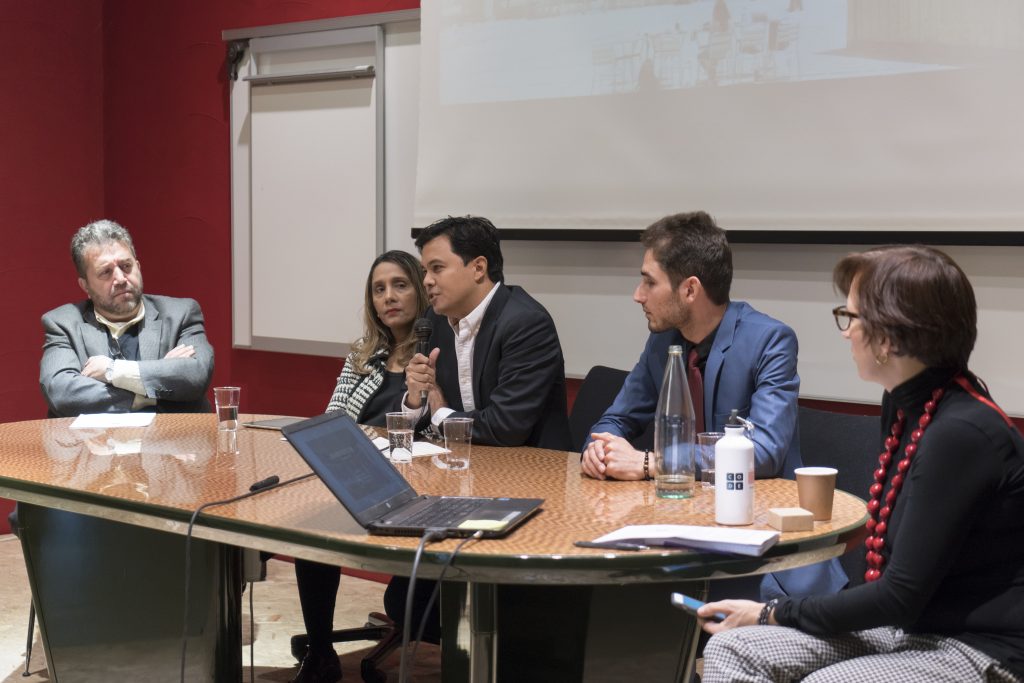
Jihad Asad, Kiran Trehan, Mark Latonero, Omid Habibi and Christine Mendonça. Photo: Fabrizio Albertini
Participating in the panel on innovation and entrepreneurship are Omid Habibi, Afghan and member of Shared Studios, an organisation that created those immersive audio-visual installations known as the Portals; Jihad Asad from Refugee Company; professor Kiran Trehan from Enterprise and Diversity Alliance at the University of Birmingham; and Mark Latonero from Data & Society. Asad, a Syrian refugee, says, “I’ve been an entrepreneur my whole life, it seemed useful to me to teach what I know to other refugees. I’m familiar with how the industry works in Syria, and I knew that the one in Holland was flourishing – putting them together seemed like a good idea. Another thing that we’re doing is creating co-op spaces so that workers can reduce their expenses.” For Habibi, it is necessary to create public spaces that are free and which can serve as incubators, while Trehan talks about the experience of Birmingham in connecting professionals, banks, businesses and minority groups that had previously been working in total isolation. Mark Latonero warns: the same technology we use to connect and help, like Western Union’s money transfer, can also be used to exploit and enslave. “We need to discuss the costs, the damages and the risks of using this technology in spaces dedicated to refugees.” For Asad, in order to communicate with politicians (or with that which Trehan defines as “the mainstream”), you need to provide them with comprehensible incentives. “If they think it’s something that’ll burn them, they’ll stay as far away as possible.” Trehan, however, is not convinced that politicians or CEOs are the best examples of real leadership. “I strongly encourage people to discover whatever leadership already exists in an area because those are the people who get things moving.”
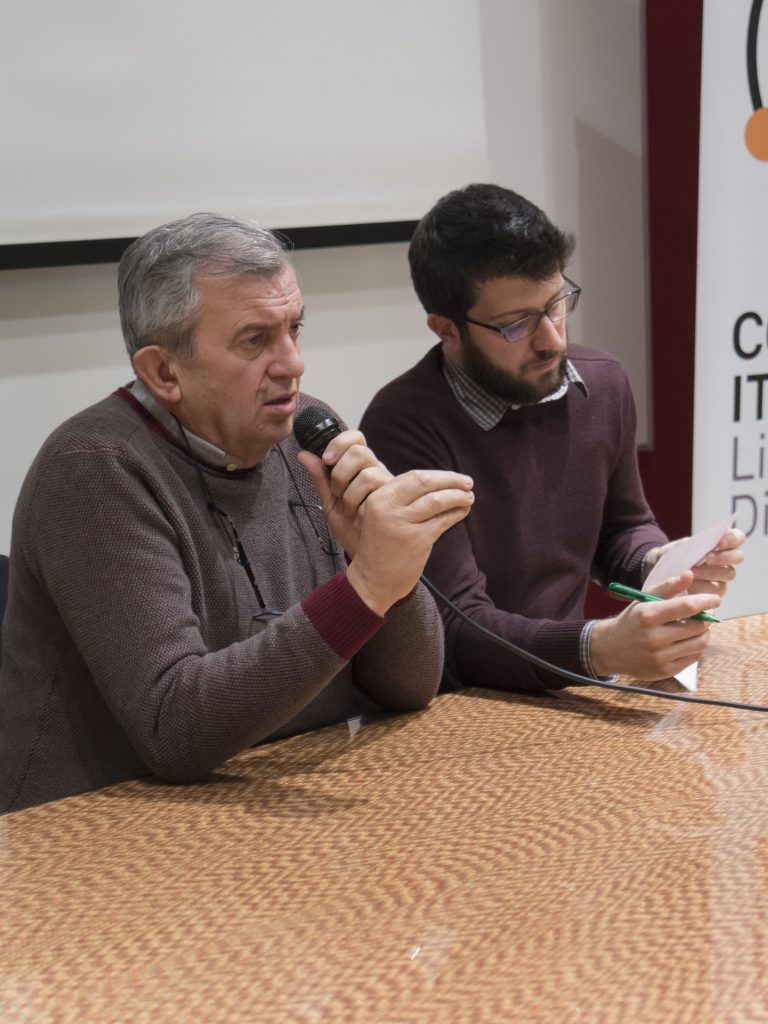
Don Virginio Colmegna and Paolo Riva (Casa della Carità). Photo: Fabrizio Albertini
Don Virgilio Colmegna from Casa della Carità begins by talking about a trip to a school on the outskirts of Milan. “These are technologically connected kids, but when I asked them how many immigrants arrived in Italy this past year – that is, 170,000 – they gave me numbers ten times as great. It’s convenient to unload all one’s fears related to the global village on immigration.” For Don Colmegna, the phenomenon of migration needs a real narrative that talks about the complexity as well as rights and feelings. Returning to what Emma Bonino said, one major problem is the proximity of the police stations to which migrants are still constrained, as well as the existence of a chain of illegal immigration and the management of immigrants as an issue of public order. Don Colmegna believes that a fundamental step is that of moving from emergency and assistance-based solutions to structural ones. At the Casa dell Carità, he says, “in talking about the need for having a residence, we have highlighted a fundamental requirement. And that is why we’re giving tens of thousands of residences to people, because it’s the only option – if you lose your residence, you lose your job.” To all those people who are worried about the idea of security, he continues, “you need to explain that we are working for the security of everyone, and that, without immigrants, our entire system wouldn’t work and we cannot leave them in the hands of criminals.”
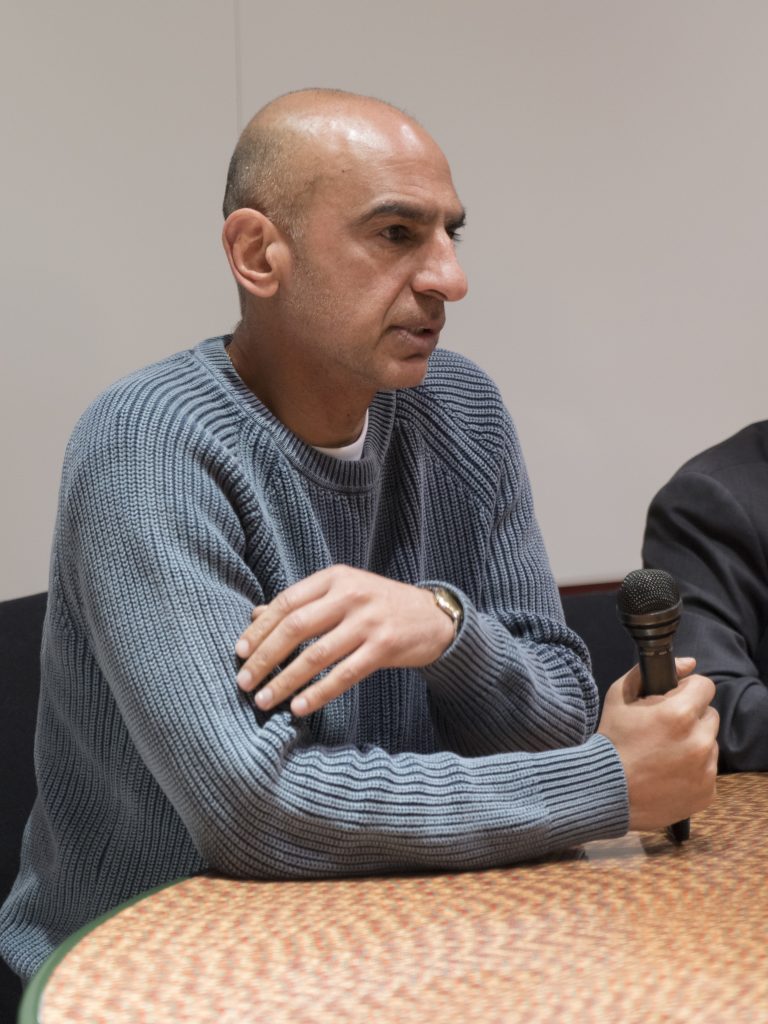
Monder Ram (University of Birmingham)
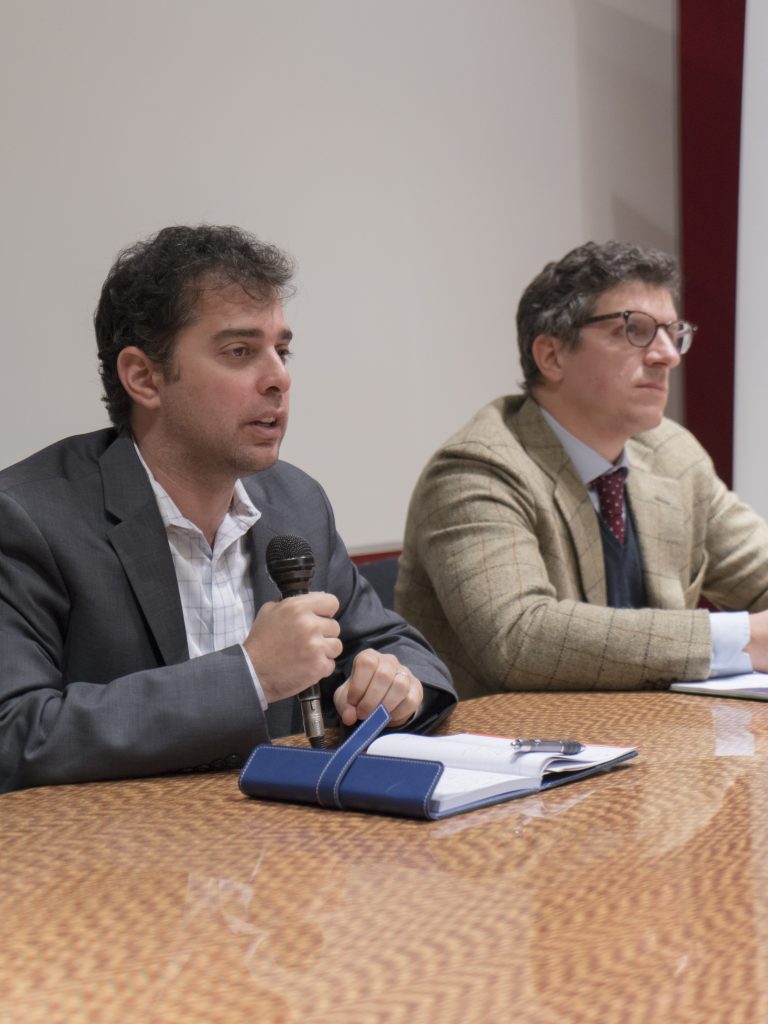
Jeremy Gorelick (PwC) ed Emiliano Giovine (R&P Legal)
Wrapping up the day there is a panel on private investment and business. Jeremy Gorelick of PwC, professor Monder Ram from the Centre for Research and Minority Entrepreneurship and Emiliano Giovine of R&P Legal start things off by talking about the experience of connecting refugees with local chambers of commerce. Jeremy Gorelick notes how terrible the reaction to Obama’s idea of welcoming 10,000 Syrian refugees to the United States was. In New York and Los Angeles, he says, “the cost of living is too high; but even if federal programmes can cover the costs, there is no long-term federal help, and therefore local politicians in turn say they can’t do it.”
Monder Ram, who has been working for 15 years on a series of projects in Birmingham, says: “In England statistics easily demonstrate that without immigration there wouldn’t be any economic growth, but just look where we’ve found ourselves with Brexit looming and all that it implies.” Academic research, Ram says, is necessary but not enough; there needs to be a combination of subjects, institutions, local politicians and communities. “We know for certain that migrants contribute to the life of our cities and public spaces, how can we change this other narrative? Above all, when out of necessity migrants create their ecosystems outside the mainstream. At present, we are working on a national project with the Royal Bank of Scotland, which is providing mentoring to business leaders within migrant communities as well as assistance.” In this regard, Italy is definitely behind, Andrea Menapace notes, but the opportunities are enormous. For Gorelick, the secret to having both local and migrant populations move at the same pace is to anticipate a great deal in advance the growth of cities and the need for infrastructure and housing at affordable costs. Emiliano Giovine, giving the example of Turin, says: “When we sit down to discuss things with legal experts and various chambers of commerce, the primary objection we always run into is: how can we allocate funds, develop capacities and connect them to interested parties when we can’t even manage to do it for Italians?”
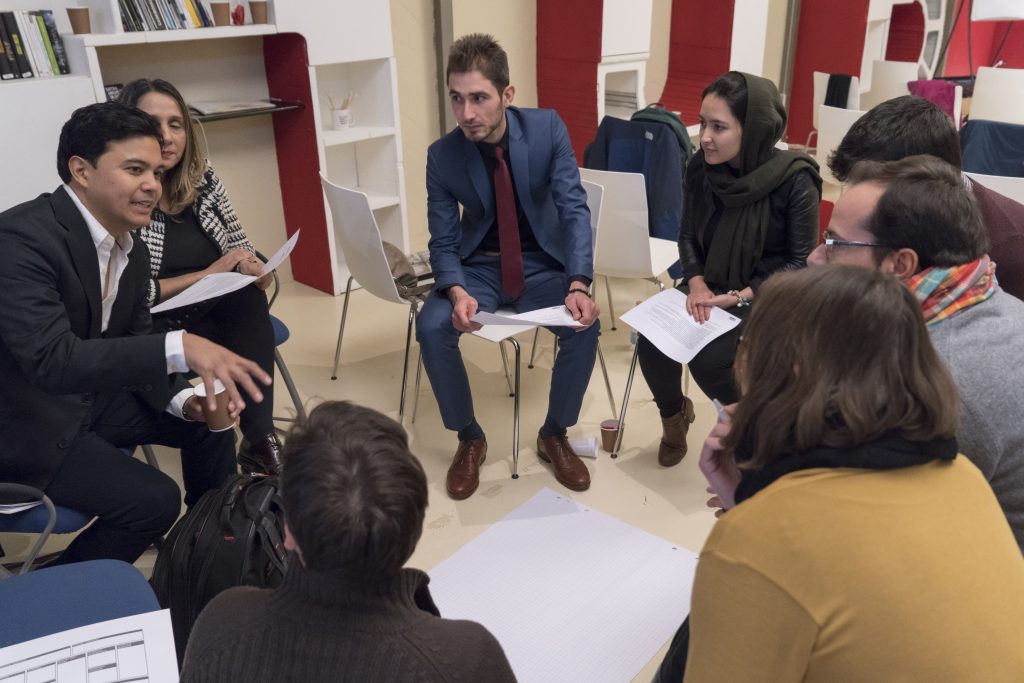
Cities for all – workshop. Photo: Fabrizio Albertini
The afternoon tables focus on the importance of integration through work together with culture, access to services, autonomy, language, sustainability, a sense of protection, economic incentives, church involvement, schools, donors, trade unions and commercial and industrial activity. For one of the participants there is also the need to establish universal rules of reciprocal assistance in which countries help one another: “I’m saying this because, as a Syrian, I never, never would have imagined that one day we might need so much help, that one day it would be our turn.” And seeing as that Emma Bonino reminds us how Viktor Orban has based all his policies on refusing the EU request to host 1,300 migrants when every year 6,000 Hungarians leave their country, we leave the last word on integration to a Hungarian participant. “If you look at the map of my country, the paradox is that those communities which are the most afraid of migrants are those that have never seen a single one.”
Translation by Alexander Booth.
Header photo: Sonia Folin, Manuela Brienza, Fleur Bakker, Csilla Toth e Andrea Menapace.
All photos in the article: Fabrizio Albertini.




